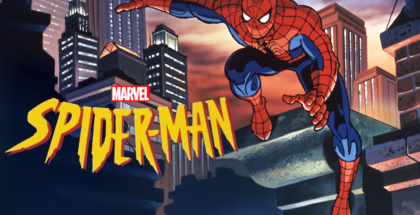Netflix UK film review: Fighting with My Family
Review Overview
Cast
9Wrestling
10Downplaying of AJ Lee
4Rachel Bowles | On 26, Jul 2019
Director: Stephen Merchant
Cast: Florence Pugh, Nick Frost, Lena Headey
Certificate: 12
Watch Fighting with My Family online in the UK: Netflix UK / Apple TV (iTunes) / Prime Video (Buy/Rent) / TalkTalk TV Store / Rakuten TV / Google Play / Sky Store
Florence Pugh is definitely one to watch in 2019 and if VODzilla.co were a betting mag, we would surely back the odds of little golden statuettes in her future. Much like her character in Fighting with My Family, the 23 year old actress is incredibly talented and accomplished for one so young. Starring in the likes of The Following, Lady Macbeth, Park Chan-Wook’s The Little Drummer Girl and Ari Aster’s Midsommar, Pugh is that rare acting talent who is magnetic and mesmerising while simultaneously able to disappear entirely into her character, unrecognisable from role to role.
Here, she plays the earnest but rough-and-ready Saraya Knight, a teen amateur wrestler who not only shares a ring with her brother, Zak (the sterling Jack Lowden of Dunkirk and Calibre), but also unlikely, sky-high hopes of making it in the WWE (formerly the WWF), the world’s most popular and successful wrestling federation.
Fighting with My Family is a fictionalised biopic based on the humble beginnings and stratospheric rise of real life wrestler Saraya Jade Bevis Knight, more well known by her ring name, Paige. The real Saraya herself is only 26 years old and Fighting focuses on just a couple of her formative years – there are only four years from wrestling in WAW, her parents’ amateur wrestling outfit in Norfolk, to her meteoric success as the youngest women’s wrestling champion in WWE.
Fighting begins in the grey council estates of Norwich, where little Saraya is fighting her brother for the TV remote. A deadpan, hilarious Nick Frost plays dad, excon and wrestling promoter Ricky, who intervenes – not, as you’d expect, to break up the fighting siblings, but to critique Zak’s chokehold, setting the tone for the familial dynamics of this lovable, eccentric, working class household. Fast forward to 2012 and we see the Knights in the context of their community – Saraya and Zak are fighting regularly to small, exultant crowds with their mother, Julia (a humorous, robust and loving Lena Headly). Zak also regularly coaches the otherwise abandoned urban youth of Norwich, including a blind student, while Ricky books shows, among other promoter tasks – such as checking consensually but rather thoroughly if his talent can take a bowling ball to the bollocks.
The Knight family are naturally comical and many of the funniest lines in the film are lifted word for word from 2012’s Channel 4 documentary The Wrestlers: Fighting with My Family, or through director Stephen Merchant’s initial interviews with the family. In other areas, Merchant’s humour can fall a little flat, perhaps overly relying on a working class Norfolk accent rubbing a bourgeois stranger or po-faced Floridian the wrong way.
However, it’s a small complaint when such a stellar cast pull off the humour and charm of this very unique clan. (The only real let-down is Vince Vaughn repressing his comedic abilities to play a one-note tough-coach-with-a-heart-of-gold cliche.) After Fighting With My Family’s first-act world/building, the film evolves from an underdog sports story to something a little more complex. When Saraya is headhunted as new talent for WWE, it’s bittersweet, as Zak is rejected. A physical and emotional gulf opens up between the siblings, as Saraya leaves England to train for WWE in the USA, and Zak is left at home, eschewing fatherhood and coaching to bitterly fester in a cocoon of bristling resentment. Saraya, despite seemingly living the dream, is completely out of her depth – being a goth wrestler marks her as different from the blonde models and ex-cheerleaders that the systematically sexist WWE were recruiting at the time for the Women’s division.
Both siblings have to negotiate the dark side of the American Dream in the #TimesUp era, as Zak must wrench himself from the pull of toxic masculinity and Saraya must negotiate her own internalised misogyny to thrive at WWE and become an important figure in the hard-fought women’s revolution – a grassroots wrestling movement that made WWE take women’s wrestling seriously.
The wrestling scenes are breathtaking too; perhaps borrowing the expertise of WWE Studios’ production, Merchant capturing the balletic violence of good wrestling with a certain cinematographic kineticism.
Fighting is also rare in that its young heroine has no love interest, instead focusing on female friendships and familial relationships, particularly the bond between brother and sister and what happens when it’s tested. It’s this deft handling of both universal and pressing contemporary themes that make Fighting resonate with audiences far beyond the world of wrestling.
Fighting With My Family is available on Netflix UK, as part of an £9.99 monthly subscription.























